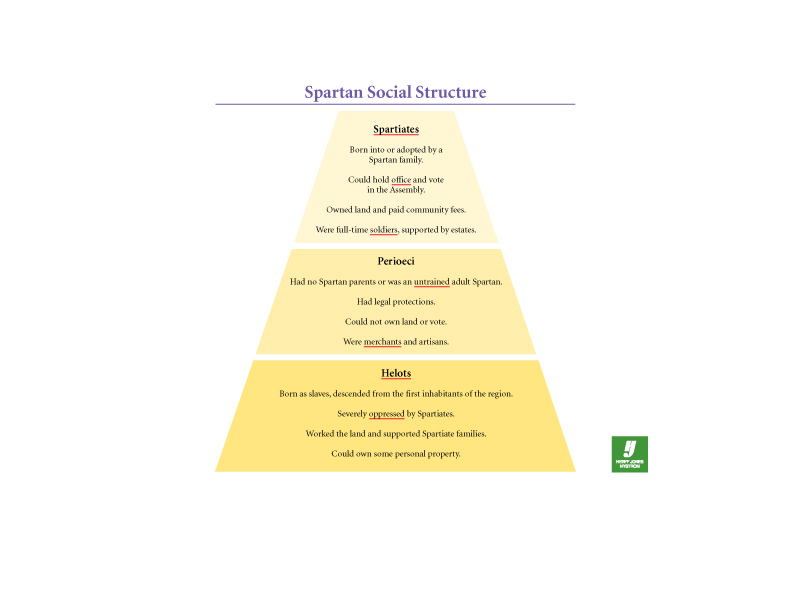
The wives and daughters of the Spartiates had more rights than most women of ancient Greece, had some military training, managed estates, and were not forced into seclusion. They were not full citizens however.
Sparta had an unusual system of government. Two kings inherited their position. Five officials called ephors and a council of elders were elected. Final decisions were made by the Assembly, which consisted of all male citizens.
Spartans were the most highly trained and deadly soldiers in ancient Greece. Sickly babies were abandoned to die. Boys were brutally trained from age 7 to 20 as soldiers.
Some families could not afford the cost of military training. Boys who were not trained, who did not complete their training, or who were not selected for the military could not be citizens.
Merchants in Sparta faced tremendous difficulties. Spartans believed wealth weakened a person and a country. Everyone in Sparta was expected live very roughly. Spartan currency was iron bars and no one could own gold or silver.
Helots, or slaves, were owned by the Spartan city-state, not individuals. They were not sold to different owners. Unlike slaves in other city-states, helots had their own families and often lived in villages.
Every year the Spartiates declared war on the helots, allowing any Spartan to kill a helot without punishment. Elite Spartan trainees were expected to raid and loot helot villages without being caught. A secret society of Spartiates killed any helot thought to be potentially dangerous.